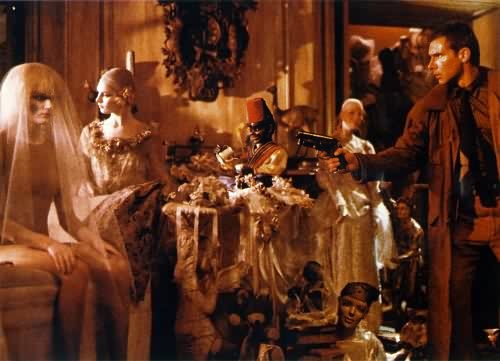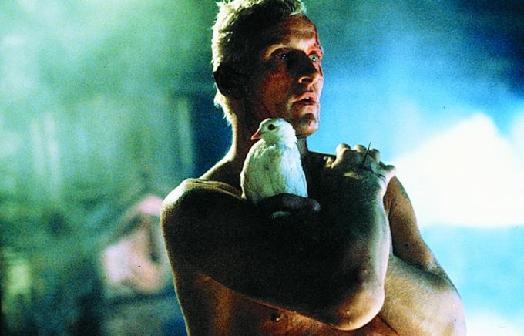
Long before Ridley Scott was making confusing and badly scripted prequels, he was conjuring up one of my favourite films of all time; Blade Runner. Based on the Philip K Dick novel, Do Androids Dream of Electric Sheep?, Blade Runner was first released in the USA exactly thirty years ago today on the 25th of June, 1982 (in the UK, it was released on the 9th of September, 1982). In honour of this auspicious occasion, I'm going to take a quick look at a few of the things that make it so good.
Neo-Noir
Blade Runner is set in 2019, a mere seven years into our own future. Billed as both a science fiction and an action film, it is in fact (like Scott's Alien) a chilling combination of the two. However, what made the film so unique was the added genre ingredient of neo-noir. Neo-noir draws inspiration from the classic 40s/50s film noir genre, famous for hardboiled detectives, femme fatales, chiaroscuro lighting and lots of booze, sex and cigarette smoke. Blade Runner has all of these and more, adding a glossy yet gritty layer of cinematic goodness to what would otherwise have been a rather different style of sci-fi.

 |
| Swirling cigarette smoke and shadowy Venetians are just a couple of the neo-noir touches to be found in Blade Runner |
More Human than Human
Androids are robots that look like humans. Whole books have been written about why we are fixated on building exact machine replicas of ourselves, and they are full of intriguing and complex psychological concepts - but we don't have the time to go into all that here. Cinema is replete with 'human-looking robots' - mostly because they are very easy to construct and film, what with them looking exactly like normal humans and all. Ridley Scott explored the idea of the indistinguishable android in 1979's Alien; in Blade Runner he takes it to the next level. Replicants, as they are known, are so close to being human that it is impossible to tell the difference without strenuous testing. The Nexus 6 Replicants, which our anti-hero Deckard (Harrison Ford) is hired to 'retire', have begun to think for themselves. On a mission to extend their four year life spans, they team up to kill their way to the answer using their enviable strength and fighting skills. Forget the Terminator; never have androids been so cool, or so deadly.
 |
| Pris, 'your basic pleasure model' |
Roy Batty
"If only you could see what I've seen with your eyes."
"Quite an experience to live in fear isn't it? That's what it is to be a slave."
"I've seen things you people wouldn't believe. Attack ships on fire off the shoulder of Orion. I watched C-beams glitter in the dark near the Tannhauser gate. All those moments will be lost in time... like tears in rain... Time to die."
 |
| Roy Batty - machine, murderer, madman and philosopher |
Played by Rutger Hauer, Roy Batty is the leader of the Nexus 6 Replicants. Technically, he's the bad guy - but even though he's a machine, a murderer, and deranged, we find ourselves starting to sympathise with his cause; all Roy wants to do is to keep himself and his friends alive. Rather than blaming Roy for his crimes, we start to blame ourselves - after all, we were the ones who created Roy; we gave him the ability to think and feel (or at least, to 'think' that he is 'feeling'), and then slapped him with a four year year life span. That's why he goes around breaking fingers, crushing skulls, and philosophising while he's at it.

No comments:
Post a Comment